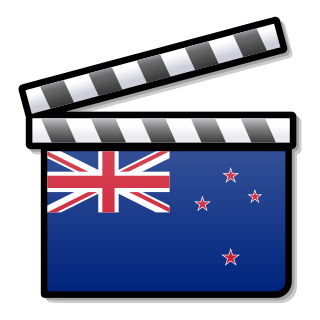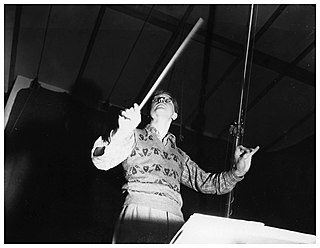Related Research Articles

New Zealand cinema can refer to films made by New Zealand–based production companies in New Zealand. However, it may also refer to films made about New Zealand by filmmakers from other countries. New Zealand produces many films that are co-financed by overseas companies.

Douglas Gordon Lilburn was a New Zealand composer.
Roman Kroitor was a Canadian filmmaker who was known as a pioneer of Cinéma vérité, as the co-founder of IMAX, and as the creator of the Sandde hand-drawn stereoscopic 3D animation system. He was also the original inspiration for The Force. His prodigious output garnered numerous awards, including two BAFTA Awards, three Cannes Film Festival awards, and two Oscar nominations.

The New Zealand Open is the premier men's golf tournament in New Zealand. It has been a regular fixture on the PGA Tour of Australasia tournament schedule since the 1970s. The 2019 event was the 100th edition of the tournament. Since 2014 it has been held as a pro-am in February or March.

The Huntaway is a large, strongly-built breed of dog used for general sheep-herding tasks in New Zealand, where they originate. They were bred to use their loud, deep bark to drive sheep.
Cinema of Unease: A Personal Journey by Sam Neill is a documentary about the history of New Zealand cinema written by Sam Neill and co-directed by Neill and Judy Rymer. The film was released in 1995, and was New Zealand's contribution to the British Film Institute's Century of Cinema series. The title refers to the dark and brooding nature of many of New Zealand's most notable films, which Neill considers a reflection of the nation's struggle to find, or form, its own identity. The film screened in the 1995 Cannes Film Festival, and won Best Documentary in the 1996 TV Guide Film and Television Awards of New Zealand.
John Feeney was a New Zealand-born director, photographer and writer.
Alun Robert Bollinger is a New Zealand cinematographer, who has worked on several Peter Jackson films, and many other films in New Zealand. He has also been a Director of Photography, including the second unit for Peter Jackson's trilogy The Lord of the Rings. He started as a trainee cine-camera operator for television with the New Zealand Broadcasting Corporation in 1966.
Sima Urale is a New Zealand filmmaker. Her films explore social and political issues and have been screened worldwide. She is one of the few Polynesian film directors in the world with more than 15 years in the industry. Her accolades include the Silver Lion for Best Short Film at the Venice Film Festival for O Tamaiti (1996).

Thomas Cullen Daly was a Canadian film producer, film editor and film director, who was the head of Studio B at the National Film Board of Canada (NFB).
Chris Plummer is a New Zealand film editor. He has worked on a number of films, including the shorts Sure to Rise and Possum, and feature films Channelling Baby, In My Father's Den, Black Sheep, No.2, Vincent Ward's documentary Rain of the Children, and Taika Waititi's Boy.
Julian Biggs (1920–1972) was a director and producer with the National Film Board of Canada and its first Director of English Production. Over the course of his 20-year career, he created 146 films, two of which were nominated for Academy Awards. His film 23 Skidoo (1964) received two BAFTA nominations, including the BAFTA United Nations award.
Roger John Horrocks is a New Zealand writer, film-maker, educator and cultural activist.

Eric Vincent Burke was a New Zealand television and film producer. Burke was the founder of Top Shelf Productions which was established in 1988. With a career spanning thirty years, Burke was noted for his documentary work and television productions that addressed social issues and everyday life.
Landfall is a 1975 New Zealand film directed by Paul Maunder. The film was first shown at the 1977 Wellington Film Festival.
The Last Tattoo is a 1994 feature film set in World War II-era Wellington, New Zealand.
Journey for Three is a 1950 New Zealand black and white immigration propaganda film.
Angel Mine is a 1978 New Zealand fantasy fiction film.
The Te Kooti Trail is a 1927 New Zealand historic drama film about Te Kooti, based on a newspaper serial written by Frank Bodle. This silent film is described as New Zealand's first docudrama and was created by husband and wife team Rudall and Hilda Hayward.
Murray Jeffries is a former New Zealand field athlete and police officer. He represented his country in the high jump at the 1954 British Empire and Commonwealth Games, and was the national high jump champion on four occasions between 1961 and 1966. A police detective, Jeffries was involved in high-profile investigations including the murder of Harvey and Jeannette Crewe and the murder of Teresa Cormack.
References
- ↑ "Wayleggo". British Film Institute. 1965. Archived from the original on 25 January 2023. Retrieved 25 January 2023.
- 1 2 3 "Wayleggo". NZ On Screen . Archives New Zealand . Retrieved 31 December 2022.
- ↑ Newton, Peter (1947). Wayleggo. Wellington, N.Z.: Reed. Retrieved 29 January 2023.
- ↑ ACMI. "Wayleggo". Australian Centre for the Moving Image . Retrieved 25 January 2023.
- ↑ ""Wayleggo," A High Country Film". Papers Past . No. 30724, Vol CIV. The Press. 13 April 1965. p. 13. Retrieved 10 January 2023.
- ↑ "High-country film coming". Papers Past . No. 30958, Vol CV. The Press. 14 January 1966. p. 10. Retrieved 10 January 2023.
- ↑ "Melbourne Prize High Country Documentary". Papers Past . No. 31103, Vol CVI. The Press. 5 July 1966. p. 9. Retrieved 10 January 2023.
- ↑ "Cinema of Unease". NZ On Screen . Ngā Taonga Sound & Vision . Retrieved 5 August 2014.